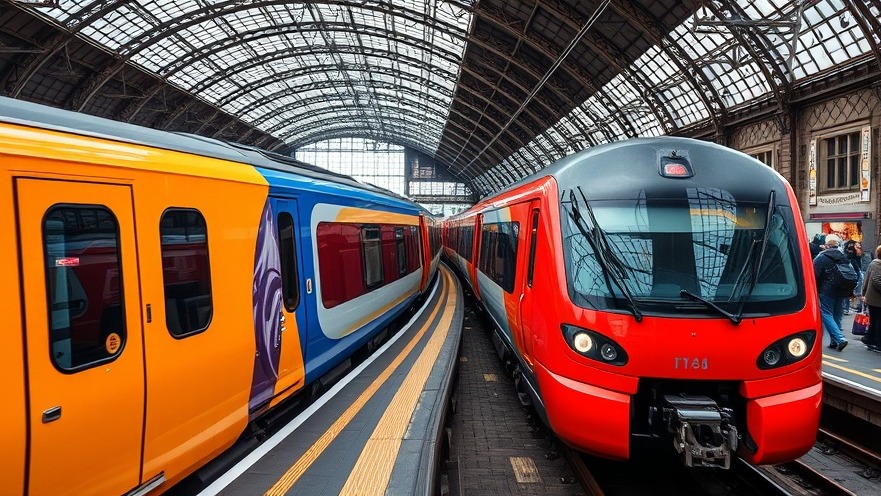
Union's Stand on Railcard Discounts: A New Challenge for Commuters
The ongoing saga between the RMT union and London Overground management over railcard discounts is raising significant concerns for commuters. Recently, the RMT union advised its front-line staff against applying Railcard discounts to Oyster cards due to "disciplinary errors". This move, while aimed at protecting workers, might inadvertently lead to higher fares for passengers during off-peak periods unless they opt to travel from stations outside the London Underground network.
Simplifying the Fare Structure: A Complicated Dilemma
Railcards, such as the Two Together or Network Railcard, offer a one-third discount on off-peak train journeys. Traditionally, these discounts are automatically loaded onto Oyster cards by train staff. However, the RMT has reported that members have faced disciplinary action for errors made while trying to assist passengers with such discounts, claiming that applying discounts is not part of their official duties. The directive has left many commuters questioning the reliability of fare discounts, leading to confusion and frustration.
Understanding the Union's Perspective
A recent edition of the RMT's members’ magazine, "Orange is the New Black", clarified the union's position. It highlighted incidents where staff members—including agency colleagues—performed this task independently only to face subsequent disciplinary measures. While the company, Arriva Rail London, has reportedly denied issuing such directives, their spokesperson asked staff to dissuade passengers from seeking these services. This situation exemplifies the broader issues surrounding worker rights and responsibilities in the face of operational pressures.
Passenger Implications: What This Means for You
For passengers, the implications of this union directive could be profound. Those dependent on railcard discounts during their commutes may find themselves paying higher fares without the option of a discount, potentially scaling back on travel or shifting to alternative transport methods. This situation brings forth larger conversations about accessible travel and the responsibilities of public transport providers to ensure fair pricing structures for all users.
Alternative Solutions and Community Action
As travel enthusiasts and daily commuters, Londoners are encouraged to advocate for clearer communication from train providers. Joining community groups or forums to discuss fare structures and passenger rights can aid in providing solidarity. Additionally, exploring transportation alternatives deemed more sustainable or budget-friendly can help alleviate some of the stress associated with fare hikes.
Future Trajectories: The Role of Unions in Transport
This ongoing conflict raises important questions about the future of unions in public transport and how they navigate the balance between employee protections and customer service obligations. As such, passengers might need to stay informed and proactive about their rights, engaging with transportation authorities to advocate for a more user-friendly and inclusive fare system.
Ultimately, knowing your rights and staying engaged with transport developments in London are crucial steps for commuters. As discussions surrounding fare increases, union rights, and operational transparency continue, it’s vital to remain an informed member of the community.
In light of these developments, it’s imperative for London commuters to actively engage in dialogues surrounding public transport issues. Join local forums or contribute your voice to the discourse to help shape a fair and equitable travel experience in London.
 Add Row
Add Row  Add
Add 






Write A Comment